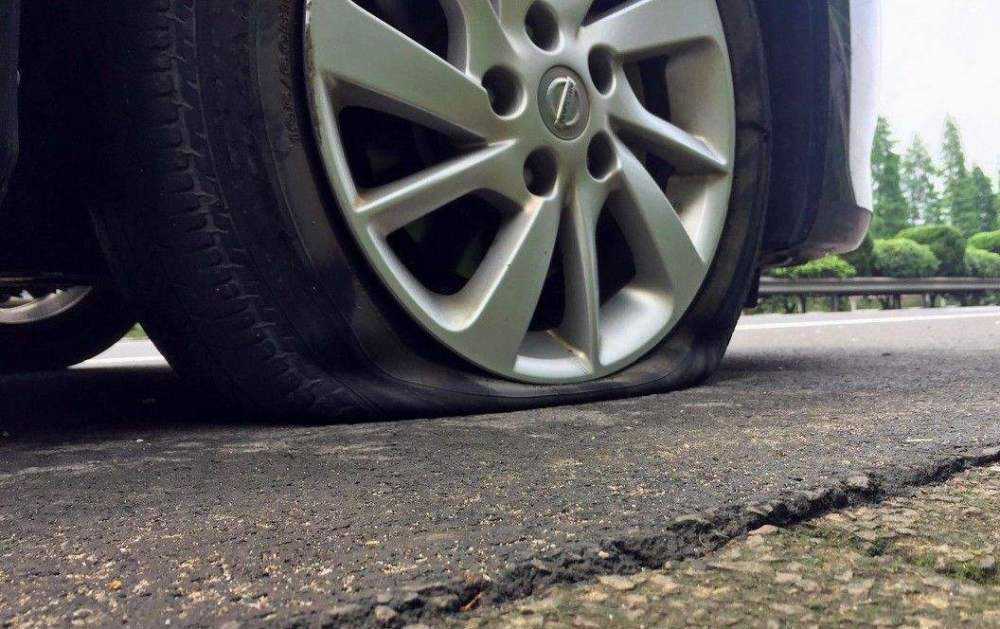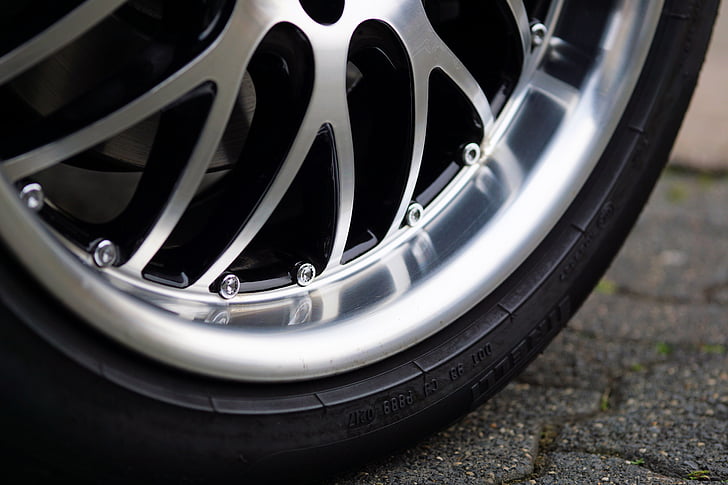Complete Guide to Inflating Tubeless Tires: Correct Methods and Precautions|BLIAUTO 2025 Professional Guide
Bliauto's 2025 professional guide to inflating tubeless tires explains correct methods, safety precautions, and best practices. Essential for brand manufacturers of tire inflators and manufacturing tire inflator professionals seeking reliable techniques.
- I. Introduction: Why Focus on Inflating Tubeless Tires?
- II. Structure and Advantages of Tubeless Tires
- 1. Structure of Tubeless Tires
- 2. Advantages of Tubeless Tires
- III. Common Tools for Inflating Tubeless Tires
- 1. Portable Air Compressor/Tire Inflator
- 2. Manual Pump
- 3. High-Pressure Canister (CO₂ Cartridge or Air Tank)
- 4. Workshop Air Pump
- 5. Smart Inflator with Pressure Gauge
- IV. Inflation Guidelines for Different Vehicles
- 1. Passenger Cars
- 2. SUVs / Off-Road Vehicles
- 3. Trucks / Commercial Vehicles
- 4. Motorcycles
- V. Proper Steps for Inflating Tubeless Tires
- VI. Precautions and Common Mistakes
- VII. Tire Pressure Standards and Monitoring
- 1. Frequency
- 2. Risks of Over-Inflation
- 3. Risks of Under-Inflation
- VIII. Emergency Inflation Methods
- IX. Inflation After Punctures or Repairs
- X. Conclusion & BLIAUTO Professional Advice
I. Introduction: Why Focus on Inflating Tubeless Tires?
In the daily use of cars and motorcycles, tire condition directly determines driving safety and comfort. With the advancement of technology, tubeless tires have gradually replaced traditional tube-type tires, becoming the standard for most modern vehicles.
Not only do they offer advantages in blowout resistance, puncture protection, and fuel efficiency, but they are also easier to maintain and inflate. However, many drivers still have questions when it comes to tubeless tires:
How should tubeless tires be properly inflated?
Do different vehicle types require different inflation methods?
What should be done if there is a puncture or air leakage?
To help drivers better understand and master tubeless tire inflation techniques, BLIAUTO provides a comprehensive and detailed guide from a professional perspective.
II. Structure and Advantages of Tubeless Tires
1. Structure of Tubeless Tires
Unlike traditional tube-type tires, tubeless tires eliminate the separate inner tube and rely on the following components for airtightness and stability:
Tire casing: Bears vehicle weight and road friction.
Bead: Seals tightly against the rim to prevent air leakage.
Inner liner: Acts as an integrated “inner tube,” maintaining air retention.
Steel belts and plies: Provide strength and structural stability.
2. Advantages of Tubeless Tires
Safer: Even with a puncture, air leaks more slowly than tube tires, giving drivers more reaction time.
Lighter: Without an inner tube, the tire weighs less and offers lower rolling resistance.
Better heat dissipation: Air directly contacts the rim, improving cooling and reducing blowout risk.
Easier maintenance: No inner tube to disassemble, making repairs and replacements faster.
Because of these advantages, mastering the proper inflation techniques for tubeless tires is essential.

III. Common Tools for Inflating Tubeless Tires
Depending on the scenario, drivers may use different inflation tools. Below are the most common options:
1. Portable Air Compressor/Tire Inflator
Pros: Compact, easy to carry, plugs into the cigarette lighter or battery.
Cons: Limited inflation speed, unsuitable for large truck tires.
Suitable for: Cars, SUVs, and motorcycles.
2. Manual Pump
Pros: Requires no power, simple, and durable.
Cons: Low efficiency, labor-intensive.
Suitable for: Bicycles and motorcycles in emergencies.
3. High-Pressure Canister (CO₂ Cartridge or Air Tank)
Pros: Provides instant, powerful airflow, useful for seating the bead.
Cons: Not reusable, higher cost.
Suitable for: Off-road vehicles and motorcycles in emergencies.
4. Workshop Air Pump
Pros: High power, very fast inflation, suitable for large tires.
Cons: Stationary, not portable.
Suitable for: Trucks, buses, and repair shops.
5. Smart Inflator with Pressure Gauge
Pros: Can preset target PSI, stops automatically to avoid over/under inflation.
Cons: Slightly more expensive.
Suitable for: Drivers who demand precision.
IV. Inflation Guidelines for Different Vehicles
1. Passenger Cars
Typical pressure: 2.2–2.6 bar (32–38 psi).
Key point: Check monthly; always check before long trips.
2. SUVs / Off-Road Vehicles
Typical pressure: 2.4–2.8 bar (35–42 psi).
Key point: Off-road driving may require lower pressure for traction, but restore normal pressure before returning to pavement.
3. Trucks / Commercial Vehicles
Typical pressure: 6–8 bar (90–120 psi).
Key point: Large tires require professional high-pressure pumps; never use standard portable pumps.
4. Motorcycles
Typical pressure: Front ~2.0 bar, Rear 2.2–2.5 bar (varies by model).
Key point: Narrow motorcycle tires may struggle to seat the bead, requiring a rapid air surge.

V. Proper Steps for Inflating Tubeless Tires
Many drivers think inflation is as simple as “attach pump, add air,” but following proper steps ensures airtight sealing and extends tire life.
Inspect the tire
Look for cracks, bulges, or foreign objects.
Ensure the valve stem is intact.
Confirm recommended pressure
Check the owner’s manual or driver-side door sticker.
Never guess by experience.
Attach the pump
Remove the valve cap, and connect the hose securely.
Ensure no hissing sound.
Inflate gradually
Start the pump and inflate slowly to the recommended PSI.
If the bead won’t seat, use a quick blast of high-pressure air.
Check and adjust
Measure with a tire pressure gauge.
Release excess air if above standard.
Replace valve cap
Protects from dirt and moisture.
VI. Precautions and Common Mistakes
Precautions
Inflate when tires are cold, not after prolonged driving.
Avoid over-inflating in one go; it may damage the bead seal.
Use a reliable pressure gauge; avoid low-quality tools.
Common Mistakes
“Higher pressure saves fuel”—Overinflation causes uneven wear and blowout risks.
“You can tell tire pressure by ”sight”—Visual checks are unreliable; always use a gauge.
“All vehicles use the same tire pressure”—each vehicle has its own standard.
VII. Tire Pressure Standards and Monitoring
1. Frequency
Normal driving: Once a month.
Long trips or highway driving: Always check beforehand.
Seasonal changes: Cold weather lowers pressure naturally.
2. Risks of Over-Inflation
Excess wear on the center tread.
Harsh ride due to bouncing.
Increased blowout risk at high speeds.
3. Risks of Under-Inflation
Excess wear on tire shoulders.
Higher fuel consumption, poor handling.
Potential bead/rim damage with prolonged low pressure.

VIII. Emergency Inflation Methods
If you encounter a flat or low pressure on the road:
Portable inflator: Common, restores air within minutes.
Sealant + inflation: Inject sealant, then inflate; works for small punctures.
High-pressure canister: Instantly fills tires, popular among off-roaders.
IX. Inflation After Punctures or Repairs
Slow leaks: Often caused by valve stem or bead issues; repair first, then inflate.
Nail punctures: Use a plug kit for temporary repair, then inflate, but get checked professionally soon.
Severe damage: Inflation cannot solve the problem; replace the tire.
X. Conclusion & BLIAUTO Professional Advice
With tubeless tires becoming the norm, inflation—a seemingly simple task—has become increasingly critical.
Correct inflation not only affects comfort but also directly impacts safety and tire life.
BLIAUTO’s key advice:
Check tire pressure regularly; don’t rely on eyesight.
Choose the right inflation tool for your vehicle.
Inflate when tires are cold to avoid inaccurate readings.
Learn emergency inflation techniques to stay prepared.
Whether driving a car, SUV, truck, or motorcycle, only by understanding and following proper inflation methods can you truly enjoy the benefits of tubeless tires.
BLIAUTO will continue to provide professional automotive lighting and maintenance knowledge, ensuring your journey is safe every mile.
Learn more about our automotive lighting products.

Bliauto Tire Inflator - Model T1 Boost efficiency with Bliauto’s Tire Inflator—Model T1, a high-quality choice for brand manufacturers & wholesalers. Designed for durability and precision, this tire inflator ensures fast, reliable inflation for automotive and industrial needs. Trust Bliauto, a leading wholesale tire inflator supplier, for high-performance solutions. (Character count: 298) Optimized for SEO with target keywords while maintaining readability and brand authority.

The Bliauto Tire Inflator—Model T2 offers reliable, fast inflation for all tires. As leading brand manufacturers of tire inflator experts, Bliauto ensures durable, efficient performance. Ideal for on-the-go use, our manufacturing tire inflator combines quality and convenience in one compact design.
Connect with Bliauto for Automotive LED Lights Solution
Bliauto is dedicated to designing innovative automotive LED lighting systems. Let's talk about your needs!
© 2025 Bliauto All Rights Reserved.








Bliauto
Bliauto Light
Bliauto
Bliauto Light
Bliauto
Whatsapp: +8618811846160